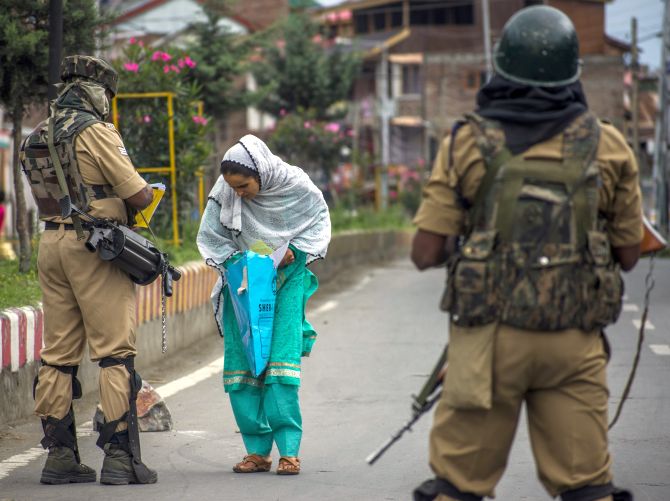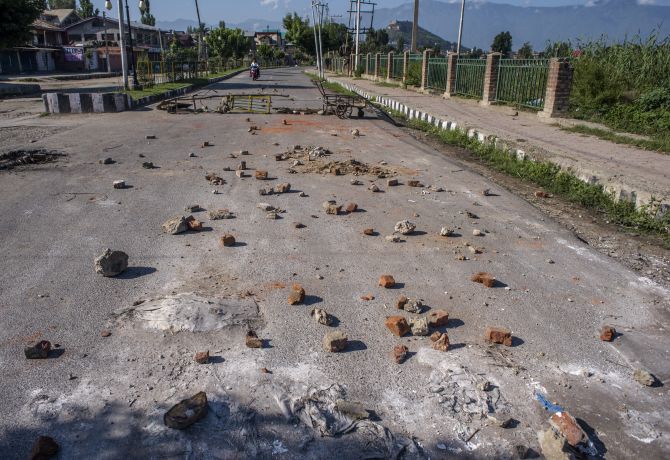 | « Back to article | Print this article |
However, it was not clear on what basis most of the people were being held.

Since the abrogation of special status of Jammu and Kashmir on August 5, authorities have arrested nearly 4,000 people in the Valley.
The authorities have also arrested more than 3,800 people, Reuters reported quoting a government report dated September 6, saying about 2,600 have since been released.
The report claims that more than 200 politicians, including two former chief ministers -- Omar Abdullah and Mehbooba Mufti -- of the state were arrested, along with more than 100 leaders and activists from an umbrella organisation of pro-separatist political groups.
Of the detained political leaders, more than 80 were from the Mehbooba’s People’s Democratic Party, formerly in coalition in Jammu and Kashmir state with the ruling Bharatiya Janata Party.

About 70 are from Omar’s National Conference and more than a dozen from India’s main opposition Congress party.
However, the report said that it was not clear on what basis most of the people were being held.
As per government official some were held under the Public Safety Act, a law in Jammu and Kashmir that allows for detention for up to two years without charge.

The bulk of those arrested -- more than 3,000 -- were listed as “stone pelters and other miscreants”.
On Sunday, September 8, 85 detainees were shifted to a prison in Agra, a police source said.
Rights group Amnesty International said the crackdown was "distinct and unprecedented” in the recent history of the region and the detentions had contributed to “widespread fear and alienation”.

“The communication blackout, security clampdown and detention of the political leaders in the region hasmade it worse,” said Aakar Patel, head of Amnesty International India.
The government, on the other hand, said that detentions are necessary to maintain order and prevent violence.
It also points to the relatively limited number of casualties compared with previous bouts of unrest.

“The right to life is the most important human right,” India’s national security adviser Ajit Doval told reporters recently.
The largest number of arrests have been in Srinagar, the data shows, at nearly 1,000.
Police also arrested more than 150 people accused of association with insurgent groups.

An official said it was likely that more than 1,200 people were still held, including all the high-profile politicians and separatists mentioned in the report, while dozens more are being arrested every day.
Mobile services and internet, including BSNL's broadband and private leased-line internet, remained snapped since August 5, when the Centre abrogated the provisions of Article 370 of the Constitution and bifurcated the state into two Union territories -- Jammu and Kashmir and Ladakh.